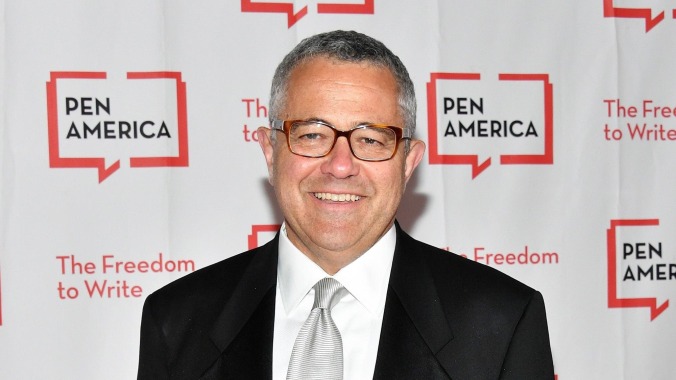CNN brings back Jeffrey Toobin, addresses that whole "masturbated on a Zoom call" thing
Toobin has said he's apologized to his co-workers, and thanked CNN for "taking me back"

It’s now been 7 months since Jeffrey Toobin was fired from his prestigious spot at The New Yorker, in the wake of an incident in which the well-known legal reporter masturbated on a Zoom call in front of several of his colleagues. In the months that followed, Toobin became many things: A public laughingstock, an online cautionary tale, and even, bizarrely, a target for the social media comic stylings of one O.J. Simpson. He also became “not a person we put on TV anymore,” with his regular contributor spots as “chief legal analyst” on CNN disappearing with the quickness that society generally reserves for its high-profile public masturbators.
But, no more! Jeffrey Toobin has now returned to being on camera, in the form of a spot he did with Alisyn Camerota on the cable news network today. It is, we’d hazard, one of the more uncomfortable exchanges we’ve seen on cable news in recent memory, as Camerota calmly lays out the details, sans euphemism, of what Toobin did. (Is it a little odd that she’s delegated the duties of laying out his actions? Probably, but there may very well be no “good optics” when it comes to “jerked off in front of your co-workers”.) Toobin, for his part, doesn’t try to sugarcoat any elements of the story, only asserting that he genuinely thought he was off the Zoom call at the time that he decided to masturbate. Noting that he “wasn’t thinking very well or very much,” and calling his own behavior “inexplicable,” he says that he’s apologized many times to the co-workers who he broadcast himself to, is in therapy, and has been volunteering at a food bank, all in an effort to become a “better person.” (He does note that he thinks being fired from The New Yorker was “excessive,” but also admits that he’s probably not a fair judge of what “excessive” might mean in this case.)
All told, it’s an exceptionally strange few minutes of television, as Camerota does her due diligence to ask the questions we might all want to hear of a man who so thoroughly demolished his entire public reputation and identity in the span of a few minutes of time. (Harming and upsetting several other people in the process, it’s worth remembering.) There are efforts to hold him accountable—noting, among other things, that he’s reported on a lot of men who’ve placed themselves in political scandals with similar behavior, and thus might hypothetically have known better—but, at the end of the day, it’s also pretty clearly an effort to make Toobin palatable for TV consumption again. In what might be the strangest moment of the whole thing, Camerota asks Toobin to confirm there will be no more “surprises” coming out about him, i.e., “No one’s going to come forward and accuse you of anything else, right?” For his part, Toobin swore he’s clean—although he also didn’t give a particularly strong rationale for why, in the name of god, he’d ever want to put himself on television, and thus in the all-seeing eye of the internet, ever again.